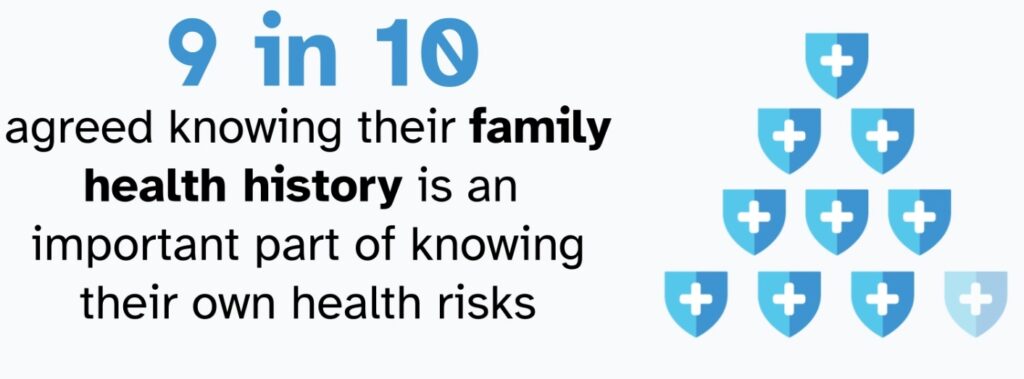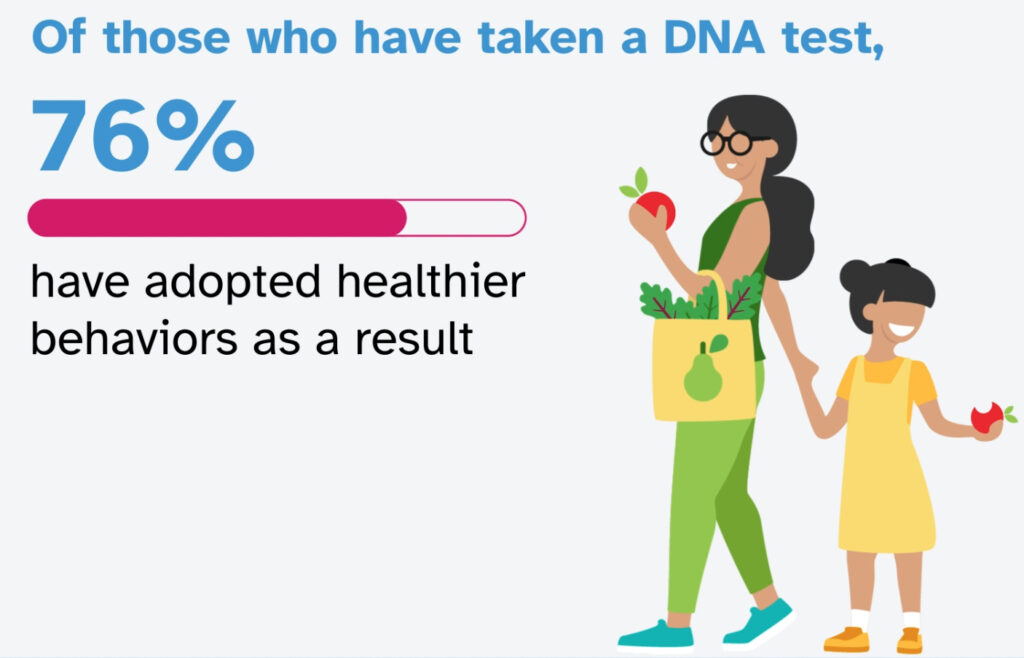Although nine out of 10 parents in the US agree that knowing family health history is important for knowing their own health risks, fewer than half, 38 percent, actually know that history, according to a new survey.
That’s according to a recent poll of 2,000 U.S. respondents from a nationally representative sample for age, gender, region and ethnicity, about 90 percent of whom self-identified as parents.

Unsure about Family health history
Eighty-two percent of parents surveyed were concerned about the risk of unknown hereditary conditions because they don’t know more of their family’s health history.
Conducted by OnePoll on behalf of 23andMe, the survey also suggests that American parents are as likely to have complete medical information for their father as their mother (67 percent and 64 percent respectively). However, by the next generation, those numbers drop.
Parents surveyed were less likely to have records for their paternal grandparents than they are for maternal grandparents, for instance.
Finding Answers
For those who can’t connect with their biological relatives, or who are looking for further, more in-depth information about their health history, there are other options. Half of parents polled have researched historical and medical records to learn more about their family.
And 52 percent of parents polled have taken a DNA test for health information — something 81 percent said is important in helping fill gaps they have about their biological family’s health history.
“If you have the ability to discuss your family’s health history with an actual living family member, don’t squander that opportunity,” said Noura Abul-Husn, VP, Genomic Health at 23andMe. “It can be a difficult conversation, and maybe they won’t have complete information to share, but every little bit can help bring you closer — and healthier — together.
“As beneficial as those conversations can be, DNA tests can also fill in the gaps, providing information even your relatives might not be aware of.”
DNA Testing
Of those who have taken a DNA test, 76 percent said they’ve adopted healthier behaviors as a result.

Common DNA-inspired habits — for parents who have made healthy changed after taking a DNA test — included eating healthier (70 percent), improving stress and mindfulness (67 percent), and getting more exercise (67 percent).
DNA test or not, 46 percent of parents rate their overall health as “very healthy,” but only 39 percent strongly agree they’re in control of their health.
Roughly three in four, or 78 percent, were confident that they have the information they need to be proactive about their future health.
“Genetic testing is an underutilized tool available for people to uncover important health info about their family and themselves,” added Abul-Husn. “Genetic testing can’t tell you the future, of course, but it can help you determine potential risk factors that you might not have known about, so you’re able to make better-informed choices for yourself and your family.”




